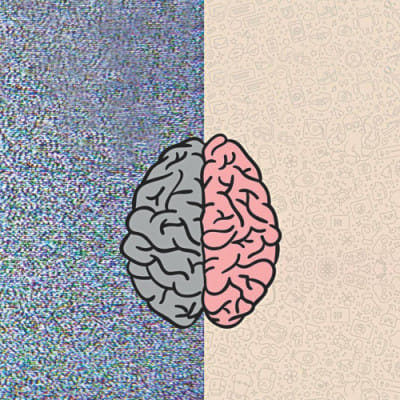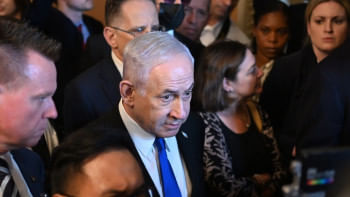Students under Microscope

The July 1, 2016 attack at Holey Artisan Bakery, Dhaka brought an onslaught of scrutiny towards the roles played by education institutions in the lives of their respective students. The arguments were based on, largely, the idea that in certain institutions cultural knowledge and participation were not imparted onto students appropriately or sufficiently, causing them to be less patriotic. This disconnect from their identity led them astray.
For obvious reasons, the scrutiny has disproportionate impacts. It's aimed at English medium schools and madrasas; schools following the national curriculum – whether Bangla Medium or English Version – are considered less vulnerable. For private universities, the added argument is their lack of participation in mainstream politics, taken in contrast to their counterparts, public universities.
For the people in this age bracket, the largest chunk of their lifetime has been spent in educational institutions. So the impact that these institutions have on the growth and development of these individuals is unarguable. At the same time, it's important to remember that we are all born into this culture. Through textbooks and festivities and merely existing in this geographical region, culture is something we pick up one way or another, even if it's not apparently as strongly or acceptably.
As a student of a private university and a graduate of an English Medium school, the one glaring issue that stood out for me in this whole debate was the lack of representation of the people being discussed. As the individuals on the receiving end of the outcomes of these debates, how do we feel about these arguments? What are our experiences in classrooms and beyond? What are the lessons we have picked up over the years? What, indeed, have we learnt about the world we are growing up in?


There are many things we learn or are exposed to at the institutions we attend that are not imparted through textbooks or lectures. There are many lessons that are unregulated because they are carried out through interactions between students and teachers. In a culture where we are taught to never question our guides, these lessons remain largely unnoticed and unquestioned. Depending on the influence it has, these lessons may even become embedded in a student's psyche and form the basis of many ideologies they subscribe to.
When asked what schools can do to counter the scrutiny put forward since the attack, one of the most common responses was that schools need to end the culture of promoting intolerance. No, schools don't tell their students to be intolerant but it is through many daily interactions and activities that the message may be passed on to students. The type of intolerance encompasses two streams generally: religious and gender-based.
Many female students will put forth that they have faced sexism within their school grounds at some point in their lives. Speaking about this, Mehruz*, a student of an English Medium school, said, "Segregation was only part of the problem. Several teachers would openly talk about male superiority." My own student, who attends the same school I have graduated from, recently asked me why teachers did not allow boys to join their cooking activity classes although some showed keen interest.
Religion and related discussions are generally treated with caution by institutions. Usually the discussions don't go beyond class lectures; talking to students about their personal views rarely happens. Many students consider this to be extremely damaging. "I think we need to be more open-minded about religious perspectives of individuals as well. Schools are afraid that they might hurt sentiments if they do so or they are letting their personal biases cloud their rationale on having interactive discussions about these topics," said Nazifa Raidah, student of Viqarunnisa Noon School and College. Fardin Hasin, a 20-year-old from Islamic Institute of Technology, talked about how he feels students from his university benefit from open discussions. He said, "We like to give each other a personal space for our religious and political beliefs, no matter how deeply we oppose those beliefs. My university has a religious affairs committee and an approved society for people seeking religious knowledge and we have an active tabligh crowd."
The lack of cultural participation is also a problem but not in the way that has been put forth. The fact is that in today's world, students look towards faster graduation with the best possible grades and only the activities that will aid them in landing the highest paying jobs. There are many factors behind the development of this attitude but it begins at school for most students. The coaching culture, lack of recreational activities, and the lack of encouragement to go beyond textbook teaching have come to define the lives of most students. Talking about the lack of interest in his own peers, Farhan*, a student of Dhaka University, says "We need to develop unity based on our participation in activities and it has to be encouraged by the institutions. We need to have civic sense and understand we have a responsibility towards the world around us. Grades matter but we need to see beyond it too."

The final issue that some students felt remains neglected is the focus on overall wellbeing of students – particularly in terms of mental health. The idea of counsellors aiding students remains largely alien and if they are present, there is a general lack of trust towards the system. Both bureaucracy and lack of awareness create a situation where many students feel isolated and trapped with problems or questions. "Just like a mother, father or any other close relative can be there for a student in any sort of situation, friends and teachers can also definitely be figures of guidance. Therefore, I believe that both private and public universities should have a centre for counselling and a trained professional to act as a guidance counsellor. Even though some universities claim that they provide such facilities, it isn't taken very seriously," said Sarara Hasan, student of North South University.
Students place not only their future but also their faith into the institutions they enroll into and the fact that these institutions have a lasting impact on their lives is undeniable. As Kidwa Arif, a recent graduate of Notre Dame College, said, "If students grow up seeing that it is okay to discriminate or condemn specific types of people, they become more vulnerable. The authority should definitely take notice if their teachers are encouraging such behaviour."
However, students also shape their institutions just like their institutions shape them. Creating dialogue amongst themselves, pushing for facilities they require, and standing up for what they believe in could transform their environment. When so much is being said about how the impressionable youth are falling into the wrong hands, it becomes imperative that the right hands reach out to them first. And that starts with all of us – students, teachers and administrators.
Nooha Sabanta Maula is an Anthropology major whose anthropologising has made her confused about life. Send her your thoughts to [email protected]

 For all latest news, follow The Daily Star's Google News channel.
For all latest news, follow The Daily Star's Google News channel. 



Comments